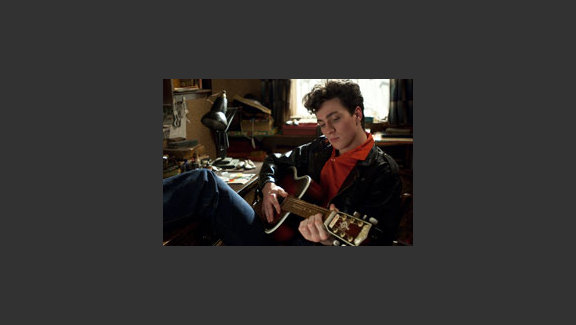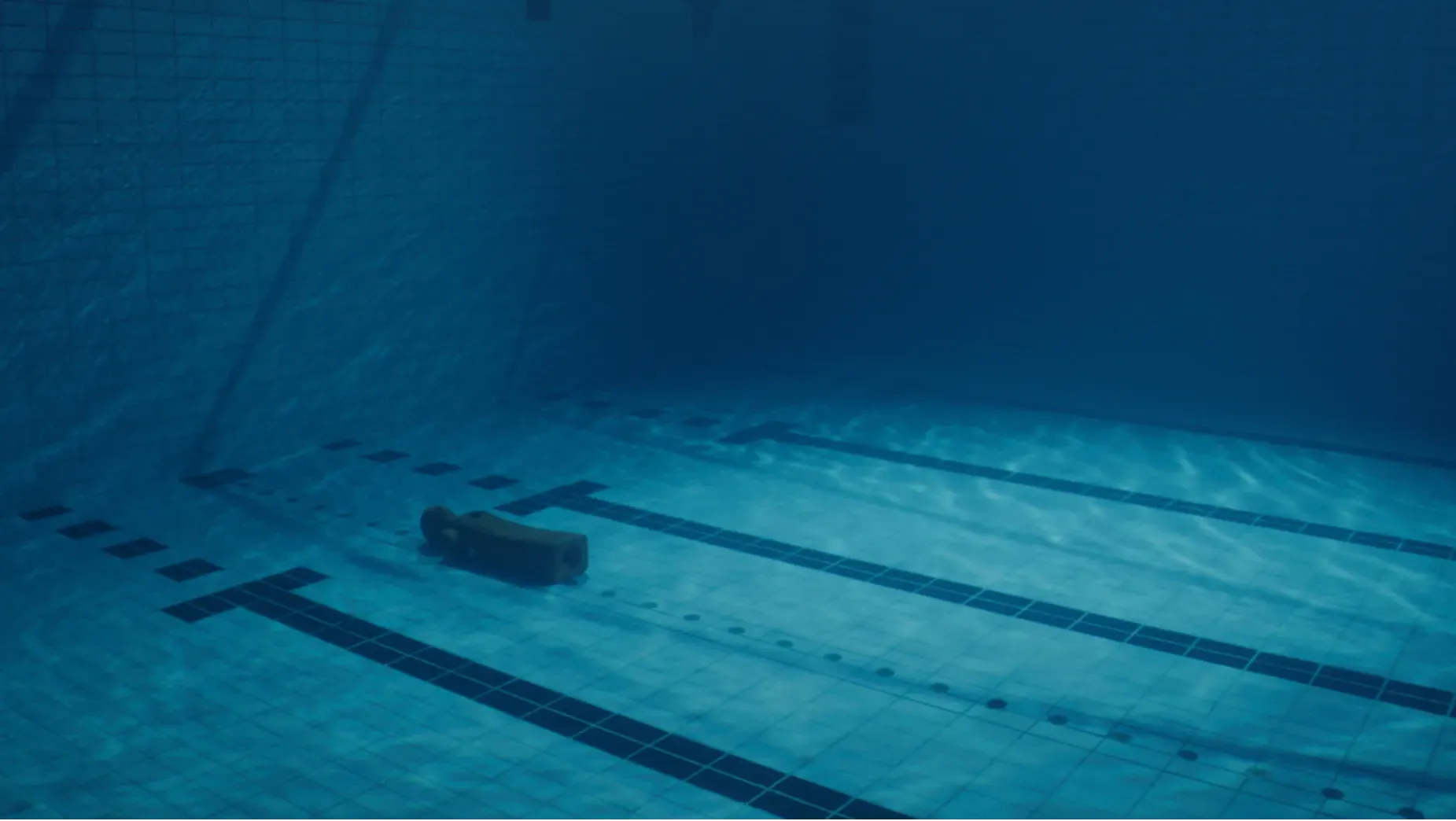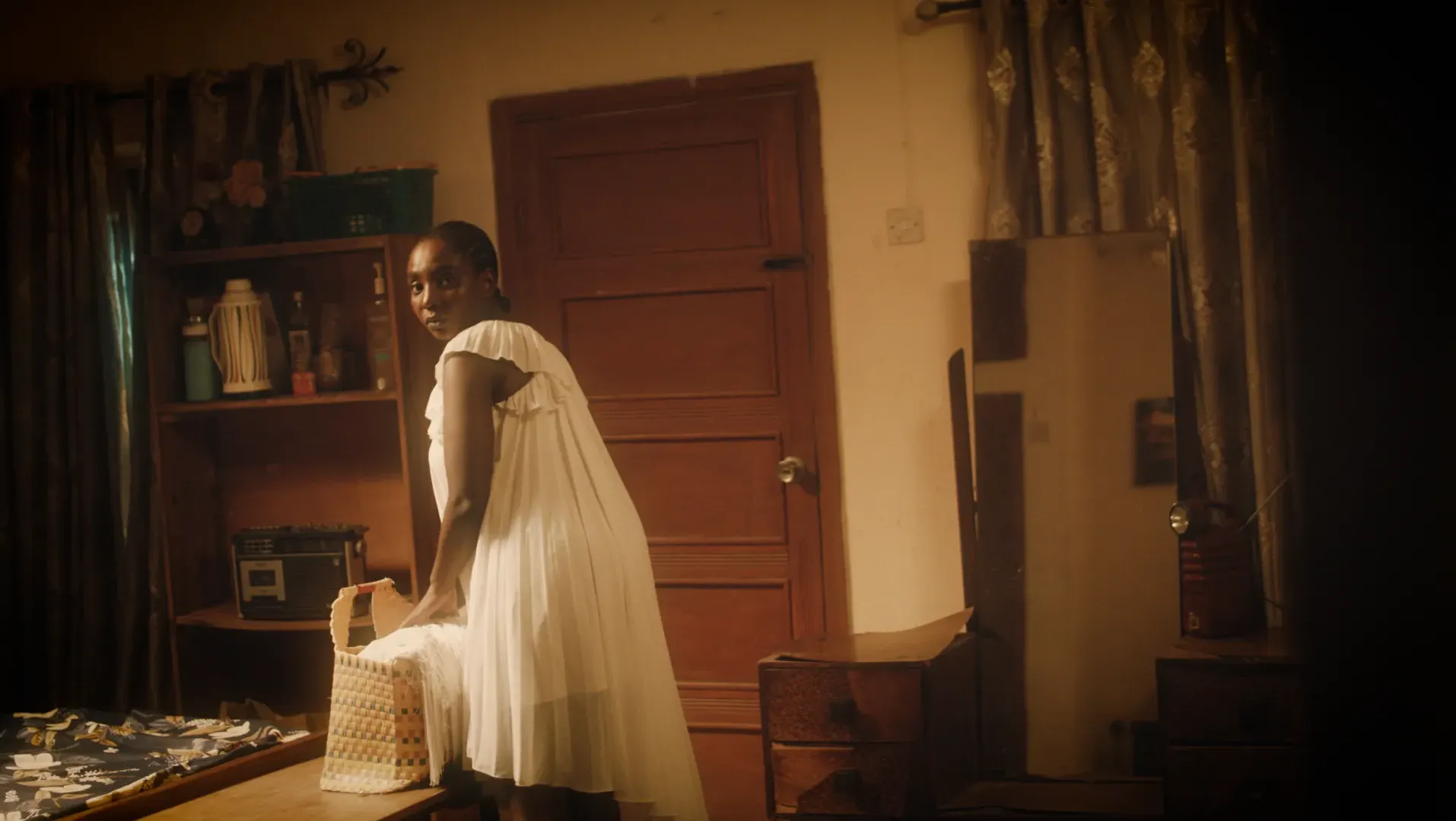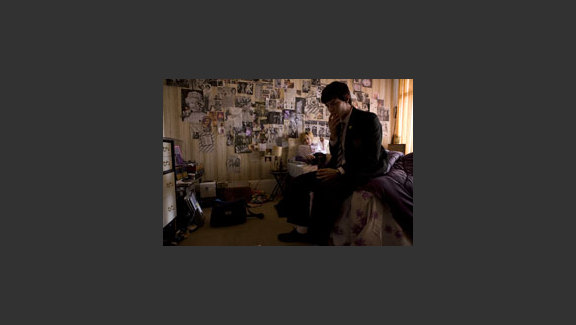Love You More
Synopsis
Georgia sits in a Geography class covering her exercise book with graffiti. Her classmate Peter watches her with longing. Georgia turns and catches him – but ignores his gaze.
After school Peter goes to the local record shop to buy the new Buzzcocks single, Love You More. It's the day of its release and he's desperate to own it. As he's flicking through the rack of 'New Releases' Georgia comes in. She's after the same record.
But there's only one copy. And Peter's got it. Georgia quizzes him on Buzzcocks. She's quietly impressed that this seeming geek knows his stuff. But there's still only one copy. Georgia slips it into Peter's school bag and they hurry out.
In the street she invites him to listen to the stolen record with her. He hesitates and admits he's supposed to be going straight home. Georgia laughs and leads him to her place - a flat above a pub.
They go to her bedroom and listen to the song. It's loud and quick and it ends suddenly. Georgia throws herself at Peter and they devour each other; a frenzy of skin and limbs, the energy of the music propelling them into losing their virginities.
Georgia walks Peter home. Peter wants to know if she'll continue to ignore him at school. Georgia says, 'Don't be poxy'. They kiss, tenderly.
Peter watches Georgia depart. He's madly in love. Georgia walks away from him. A nervous look in her eyes. Perhaps she will never love him more than she did today.
Details
- Year
- 2009
- Type of project
- Shorts
- Running time
- 15 mins
- Format
- 35mm
- Director
-
Sam Taylor-Wood
- Producer
- Adrian Sturges
- Co-Producer
- Adrian Sturges
- Editor
- Lisa Gunning
- Screenwriter
- Patrick Marber
- Director of Photography
- Seamus McGarvey
- Production Designer
- Alice Normington
- Sound
- Eddy Joseph
- Composer
- Buzzcocks
- Principal cast
- Harry Treadaway, Andrea Riseborough
Genre
Categories
Production Status
Production Company
Love You More Films Ltd
19 Fleet RoadLondon NW3 2QR
UK
T +44 (0)20 7284 5588
adrian@picture-farm.com
Page updates
This page was last updated on 12th May 2025. Please let us know if we need to make any amendments or request edit access by clicking below.
See also
You may also be interested in other relevant projects in the database.
 Nowhere Boy
Nowhere Boy
Director: Sam Taylor-Wood
Year: 2010
Imagine John Lennon's childhood. A lonely teenager, curious and sharp, growing up in the shattered city of Liverpool. Two incredible women clash for his love. Mimi, the formidable aunt who raised him and Julia, the spirited mother who gave him up. Yearning for a normal family, John escapes into music. His fledgling genius finds a kindred spirit in the young Paul McCartney. But just as John's new life begins, the truth about his past leads to a tragedy he would never escape.
 Fantasies of a Rescue Dummy
Fantasies of a Rescue Dummy
Director: Adrian Maganza
Year: 2025
A rescue dummy gets forgotten at the bottom of a swimming pool. Behind his single expression, a whirlwind of emotions flood his plastic carcass as he fantasies about being picked up and brought to the surface in the strong and reassuring arms of a swimmer. Official Selection London Short Film Festival 2026
 Shall We Meet Tonight
Shall We Meet Tonight
Director: Wapah Ezeigwe
Year: 2025
The film narrates the complex journey of a young woman as she is promised in an arranged marriage to a wealthy aristocrat. As she navigates this new social landscape, she unexpectedly finds herself drawn towards another woman from her town. This secret affection creates a conflict within her, torn between fulfilling her marital duties and following her heart. Through its poignant portrayal of love in the face of societal expectations, the movie explores themes of identity, independence, and the struggle for authentic connection amidst tradition-bound constraints. As the protagonist grapples with these competing forces in her life, viewers are drawn into a captivating tale of self-discovery and the courage to embrace one's own desires. Official Selection BFI Flare LGBTQIA+ Film Festival 2025
